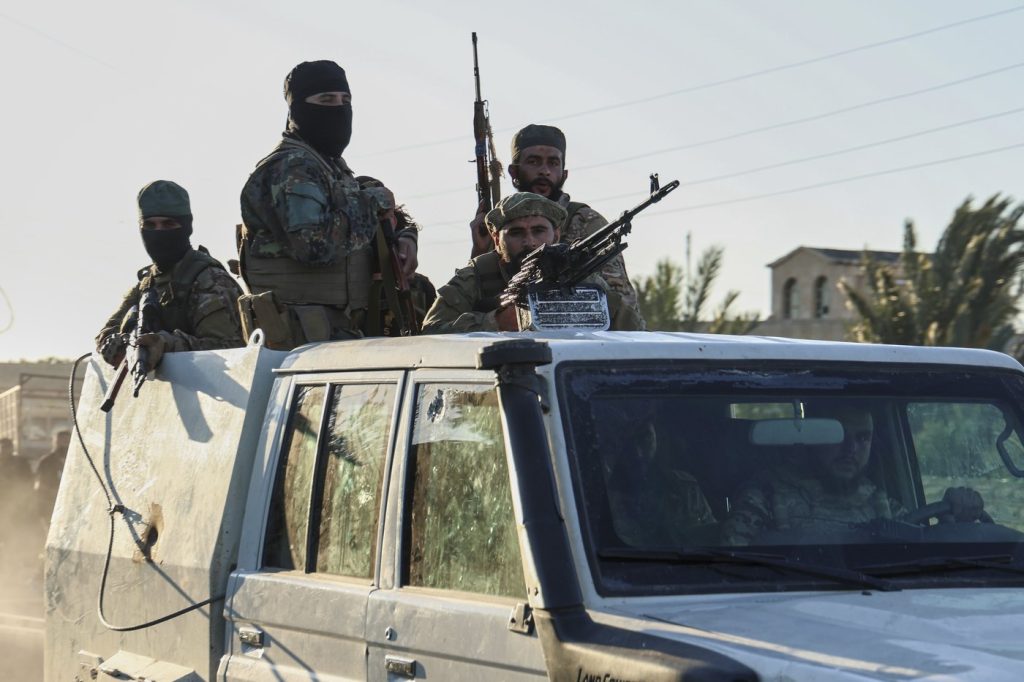BUSRA AL-HARIR, Syria (AP) — Syria's defense minister announced a ceasefire shortly after government forces entered a key city in Sweida province on Tuesday. The announcement follows a day of violent sectarian clashes that resulted in dozens of fatalities, as well as reports of an Israeli strike in the area.
Defense Minister Murhaf Abu Qasra stated that an agreement had been reached with the city’s notables and dignitaries, emphasizing that government forces would respond solely to sources of fire and would address any targeting by outlaw groups. The clashes originated from a series of retaliatory kidnappings and attacks between local Sunni Bedouin tribes and armed Druze factions in the predominantly Druze province of Sweida.
Government security forces were deployed on Monday to quell the unrest but quickly became embroiled in conflict with Druze armed groups. Reports indicate that during the same day, Israel targeted a Syrian military tank, asserting that its actions were aimed at protecting the Druze minority, who are perceived as a loyal group in Israel and often serve in the Israeli armed forces.
State-run news agency SANA did not elaborate on the specifics of the Israeli strike. However, the Syrian Observatory for Human Rights, a UK-based war monitor, confirmed that the attack successfully targeted a tank as Syrian forces advanced into Sweida city. The Israeli military did not release an immediate statement regarding these claims.
Earlier on Tuesday, senior religious leaders from the Druze community in Syria urged armed factions engaged in clashes with government forces to surrender their weapons and cooperate with authorities as they moved into the provincial capital. However, one of the main religious leaders subsequently retracted this call, arguing that assurances made by the authorities had not been honored and that indiscriminate shelling of civilians continued.
Sheikh Hikmat Al-Hijri, a Druze spiritual leader who has opposed the Damascus government, expressed through a video message that the previous statement from Druze leaders had been made following an agreement with government authorities, but that the promise was broken. He described the ongoing conflict as a "total war of annihilation" against the Druze community, reflecting deepening divisions.
Social media platforms have showcased videos depicting armed fighters with Druze captives, shouting sectarian slogans and physically assaulting them, amplifying tensions in an already volatile environment. The Druze, originating from a 10th-century sect of Ismailism, constitute a minority group with over half of the world's estimated one million Druze living in Syria, while others reside in Lebanon and Israel, including the Golan Heights, which Israel annexed in 1981.
Violence has been recurrent between government loyalists and Druze fighters since President Bashar Assad's fall in early December, when a rapid rebel offensive led by Sunni Islamist insurgents unfolded. This cycle of violence raises concerns regarding a resurgence of sectarian clashes. In March, an ambush on government forces by Assad loyalists triggered a series of sectarian attacks, resulting in the deaths of hundreds, predominantly belonging to the Alawite sect.
Recent developments heighten the risk of escalating Israeli interventions. Israeli Defense Minister Israel Katz conveyed on Monday that the Israeli military conducted operations in Syria as both a warning and a message to the Syrian regime, asserting that Israel would not permit harm to the Druze community. Despite many Druze expressing a desire for no Israeli intervention, certain factions within the community remain wary of the authorities in Damascus, especially following violent acts against minority groups such as the Alawites.











